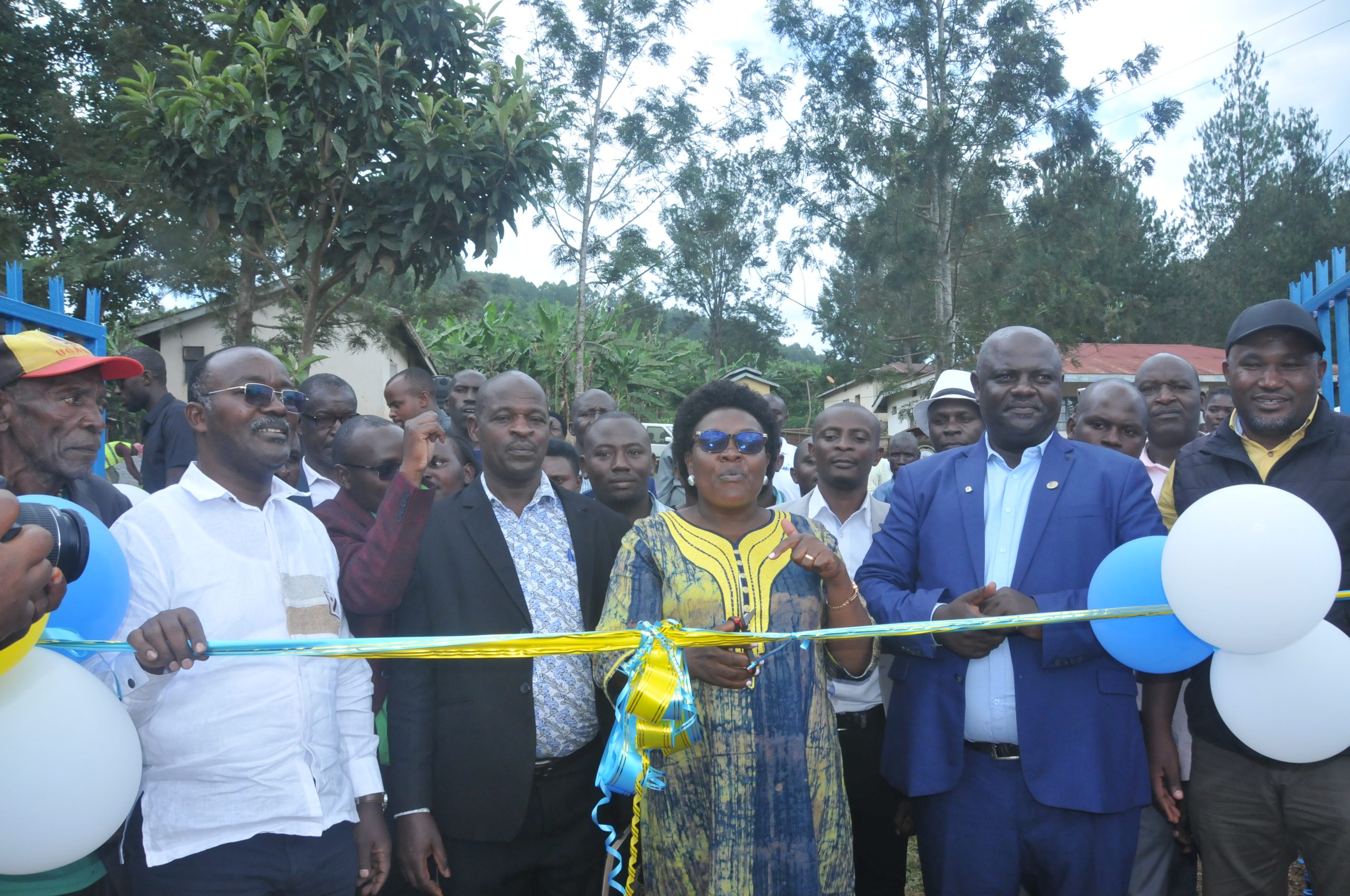BUHWEJU: The National Water and Sewerage Co-operation (NWSC) Managing Director Dr. Eng Silver Mugisha has challenged leaders of districts/local governments to look beyond the ‘traditional’ way of budgeting processes.
Mugisha said its high time districts engage and collaborate with development partners/agencies to see how they can effectively deliver social and economic services to people/communities.
Mugisha said some districts have tended to spend lots of money on some projects of which some end up turning into white ‘elephants’ leaving people not served.
He cited the example of the water gravity flow schemes where many districts have invested billions of money to establish them (water projects) but some projects have not lived to serve their intended purpose.
Mugisha attributed this to lack of sustainability plans especially on maintenance costs.
Mugisha was on Monday presiding over the belated International World Water Day for Buhweju district at Nsiika play grounds-Buhweju district. Mugisha also launched NWSC’s Buhweju area office after getting elevated from a branch to a fully fledged office.

Earlier, the Buhweju district water officer said the district has allocated about Sh600millions which is to be used to construct a gravity flow scheme project.
Responding to the water officer’s revelation, Mugisha said, “Re-purpose your water budget because out of the Sh600million, you can get off shs100million and you collaborate with us (NWSC) to extend over 20kilometres of a water pipeline.”
Mugisha commended districts like Lyantonde and Kirihura saying, “This is the system (re-purposing) we have used and through that collaboration the districts have been able to extend water to more areas within those districts.”
The district leaders had also earlier appealed to the MD to help them extend water to more areas but Mugisha said the resource envelope is still small to enable the expansions.
Mugisha cautioned politicians against politicizing government projects stressing that, “its government that has worked on this project.”
He disclosed that NWSC has also earmarked Shs2billion to develop more water sources in Buhweju district.

The Buhweju district chairman Deo Atuheire commended NWSC saying ever since NWSC extended its services to Buhweju, there is improved water connectivity in the district.
He disclosed how the district had given up on some water projects like Kamukaki because of issues of land compensation, lack of capacity to develop the project among others.
“The project had also stalled because we failed to purchase a power transformer that needed about Sh154million. Its NWSC that saved the situation,” Atuheire said as he commended NWSC.

The Resident District Commissioner (RDC) Pulkeria Muhindo said cases of domestic violence have been on increase in the district which she partly attributed them to lack of access to water.
The Buhweju district woman MP Olive Koyekyenga said, “Having safe and clean water in Buhweju district is going to drive the transformation of the district.”
Koyekyenga however cautioned people against the increasing cases of environmental degradation warning that, “We are going to run out of water if the water sources are not protected.”
The status of NWSC water supply in Buhweju
According to Buhweju NWSC area Manager Edwin Nasasira, NWSC took over water operations in Buhweju in 2016 and so far it provides water to Nyakishana, Rwengwe, Karungu, Bitsya, and Buhunga sub counties. It also operates in Kashenyi/Kajani and Nsiika Town councils.
The area has a total of over 686 accounts/taps of which 174 are public taps.
Buhweju district has a total of 352 villages of which NWSC is mandated to serve 145 and so far 70 villages are being served which represents 48%.
In 2016 when NWSC was taking over the area it found only 45,045 having access to safe and clean water but NWSC has moved the number to 86,740 people. End.








